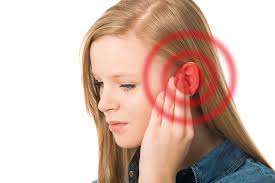Hearing the wind sound in ear without any external environmental stimulus or any apparent reason can make you feel concerned. It can be very annoying and even uncomfortable at times. It becomes a serious issue when you experience this sound continuously. This unusual sound can make it difficult for you to concentrate. Let's find out what you can do about it.

What Is It?
Medically known as tinnitus, wind sound in ear may be experienced in one or both ears. Also called "ringing in the ear", tinnitus is not limited to the sound of the wind. Some people may hear other sounds, such as humming, buzzing, grinding, whistling and hissing. Some people hear noises, while others may hear sounds similar to singing or music. When you have tinnitus, you are likely to feel your hearing going bad with time. It can be quite opposite for some, making them more sensitive to common, everyday sounds.
Is It Serious?
In most cases, tinnitus or hearing the wind sound in ear is not serious. It does not even indicate any serious underlying medical condition. Generally, the problem goes away on its own, but it can also be continuous for some people and be more significant and annoying. Severe cases may affect concentration and lead to insomnia and depression. Be sure to seek medical assistance if the problem persists and affects your sleep.
When to See Your GP
Be sure to see your doctor if you regularly hear sounds, such as ringing, buzzing, or humming in the ears. Your doctor will examine your ears and ensure that there is no underlying condition causing these symptoms to appear. Sometimes, your symptoms are due to earwax buildup or an ear infection. Your doctor can treat these issues and prevent further complications. If not clear, they may order further tests to make a correct diagnosis.
What Causes It?
While it seems that tinnitus is not that common, things are quite different and surprising. In reality, millions of people suffer from this condition, but it is also a fact that what causes it is still unclear. However, so many factors may contribute to this condition in one way or the other. For instance, people who have hearing loss often experience wind sound in ear. Some people may complain about this issue because of impacted wax in the ear. Other external causes may include a polyp, middle ear inflammation, foreign body, nose blockage, and Eustachian tube blockage.
Prolonged exposure to very high frequency sound may lead to perforation of eardrum, which may as well be one of many cause of tinnitus. Other possible causes include Meniere's disease, migraine, aortic regurgitation, sinusitis, neoplasm in brain, TM joint problem, and side effects of medicines.
How Is It Treated?
It is important to seek medical assistance, especially when you cannot sleep because of wind sound in ear. Again, you do not always require treatment because the sound often vanishes without any medical intervention. In case the problem persists, you need to talk to your doctor to determine the best treatment option. Treatment usually depends on what causes this problem in the first place. For instance:
- Tinnitus could be the outcome of a wax buildup in your ear. In this case, removal of wax can help improve your condition. Your doctor will use a procedure called syringing the ear to remove any excess wax. It involves flushing water into your ear using a syringe, and as the water comes out of your ear, it brings along with it the excess wax.
- Sinusitis could be the reason behind your tinnitus. Taking certain medications and using nasal drops may help treat the problem.
- Perforation of eardrum requires medical assistance. You need to talk to an ENT surgeon who may use a surgical procedure to help correct the abnormality.
Cognitive behavioral therapy may help in certain cases, especially when you do not really know exactly what causes tinnitus in your case.